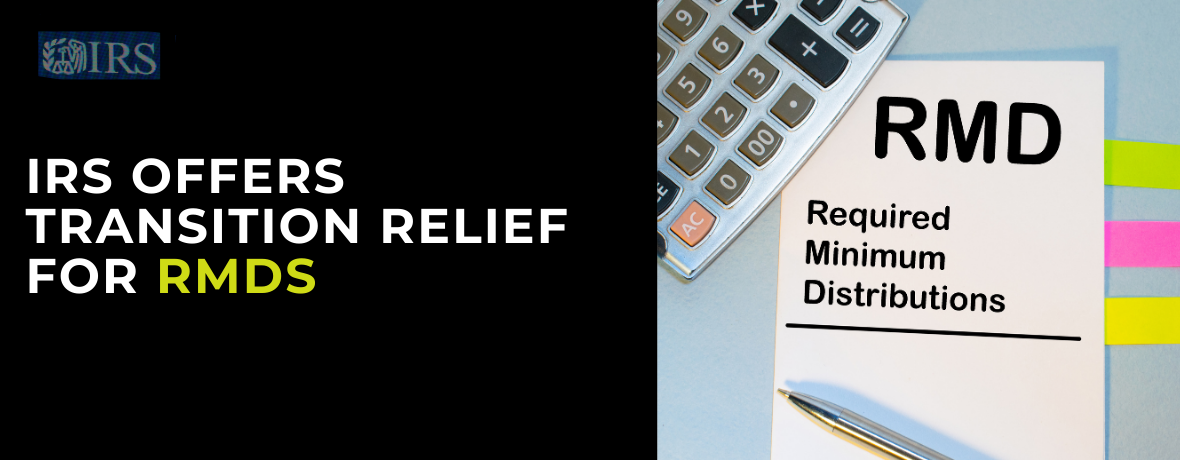
The IRS provided transition relief regarding the change in the required beginning date for required minimum distributions (RMDs) under the SECURE 2.0 Act in Notice 2023-54, issued Friday, July 14, 2023.
The required beginning date for RMDs was changed under Sec. 401 (a) (9), pursuant to Section 107 of the SECURE 2.0 Act, enacted on Dec. 29, 2022, as Division T of the Consolidated Appropriations Act, 2023 P.L. 117-328.
Originally, the defined required beginning date referred to April 1 of the calendar year following the calendar year in which someone reaches age 72. the new required beginning date is defined by reference to April 1 of the calendar year after the calendar year in which someone reaches the applicable age of 73 or 75, depending on the date of birth.
Plan administrators and other payers of RMDs expressed concern that updates to automated payments systems needed to reflect the change in the required beginning date could take some time to implement. As a result, plan participants and IRA owners who would have been required to begin receiving RMDs for calendar year 2023 but for Section 107 of the SECURE 2.0 Act (i.e., those who will attain age 72 in 2023) and who receive distributions in 2023 could have had those distributions mischaracterized as RMDs (and therefore ineligible for rollover).
The IRS is, in response, granting certain relief relating to certain distributions made during 2023 to individuals that were characterized as RMDs but are not actually RMDs as a result of the SECURE 2.0 Act. The relief includes:
- A payer or plan administrator who did not treat certain distributions as eligible rollover distributions will not be considered to have failed to meet the requirements of the SECURE 2.0 Act. The relief applies to distributions made between Jan. 1, 2023, and July 31, 2023, to a participant born in 1951 (or the surviving spouse) that would have been an RMD if not for the change in the required beginning date under Section 107 of the Act.
- The IRS is extending the 60-day rollover period for distributions not treated by a payer or a plan administrator as eligible rollover distributions to Sept. 30, 2023.
- The IRS also is extending the 60-day rollover period for certain distributions made to an IRA owner (or the owner’s surviving spouse) by extending the deadline for rolling over that potion of the distribution to Sept. 30, 2023. To be subject to this extension, the distributions must have been made between Jan. 1, 2023, and July 31, 2023, to an IRA owner born in 1951 (or the surviving spouse) that would have been RMDs before the required beginning date under Section 107.
The notice also provides guidance related to specified RMDs, as defined in the notice for 2023. Under this guidance, a defined contribution plan that failed to make a specified RMD will not be treated as having failed to satisfy the Sec. 401(a)(9) minimum distribution rules merely because it did not make that distribution. To the extent a taxpayer did not take a specified RMD, the IRS will not assert that an excise tax is due under Sec. 4974 for taking less than the required distribution.
Finally, the IRS announced in the notice that it will finalize proposed regulations (REG-105954-20, issued in February 2022) for RMDs and that the final regulations will apply no earlier than calendar year 2024. That is an update from Notice 2022-53, when the IRS said that final regulations would apply no earlier than 2023.
Source: Journal of Accountancy, July 18, 2023
continue reading
Related Posts
Ed Bond and Matt Schwartz named AIRA 2022 Distinguished Fellows
Bederson is pleased to announce the election of Charles N.







